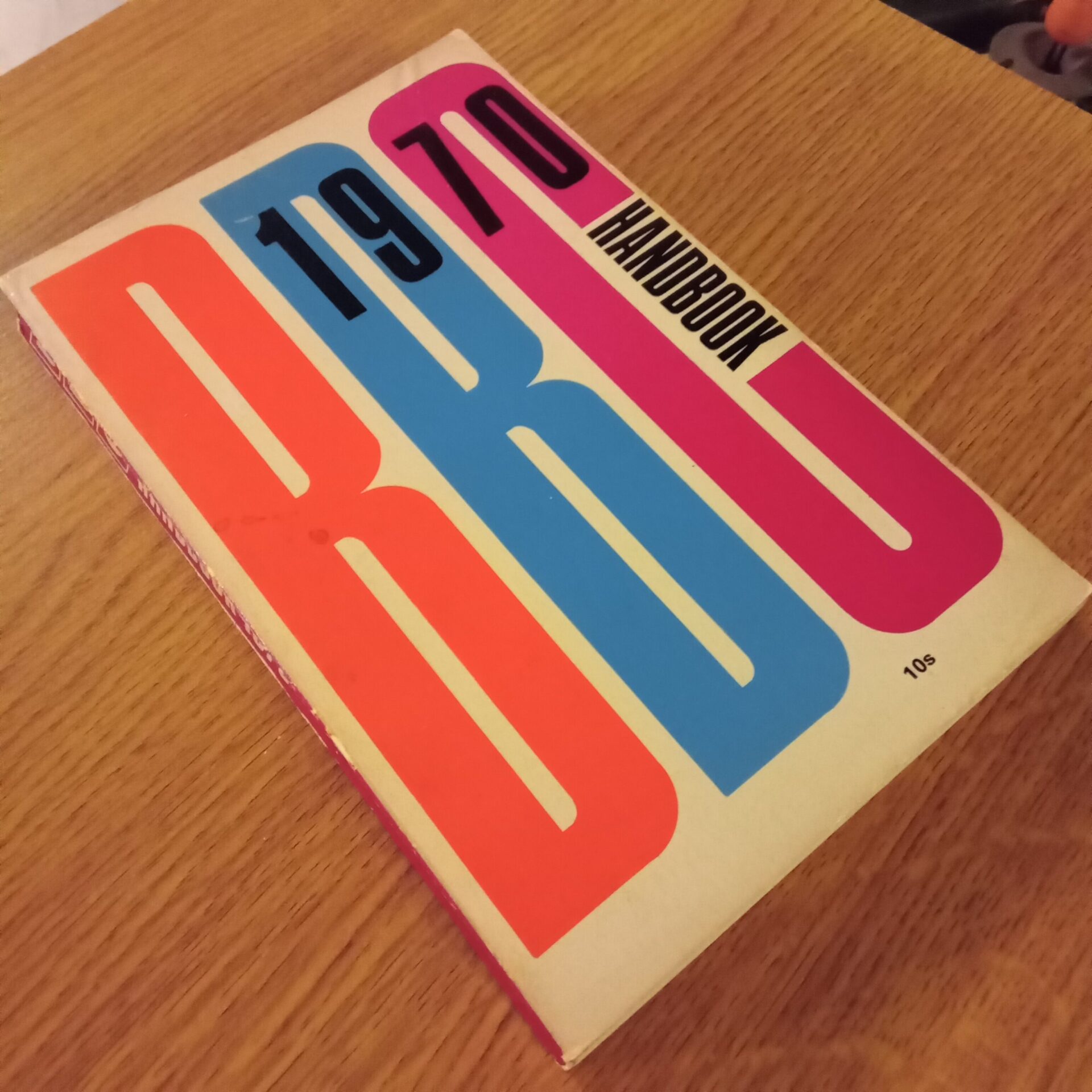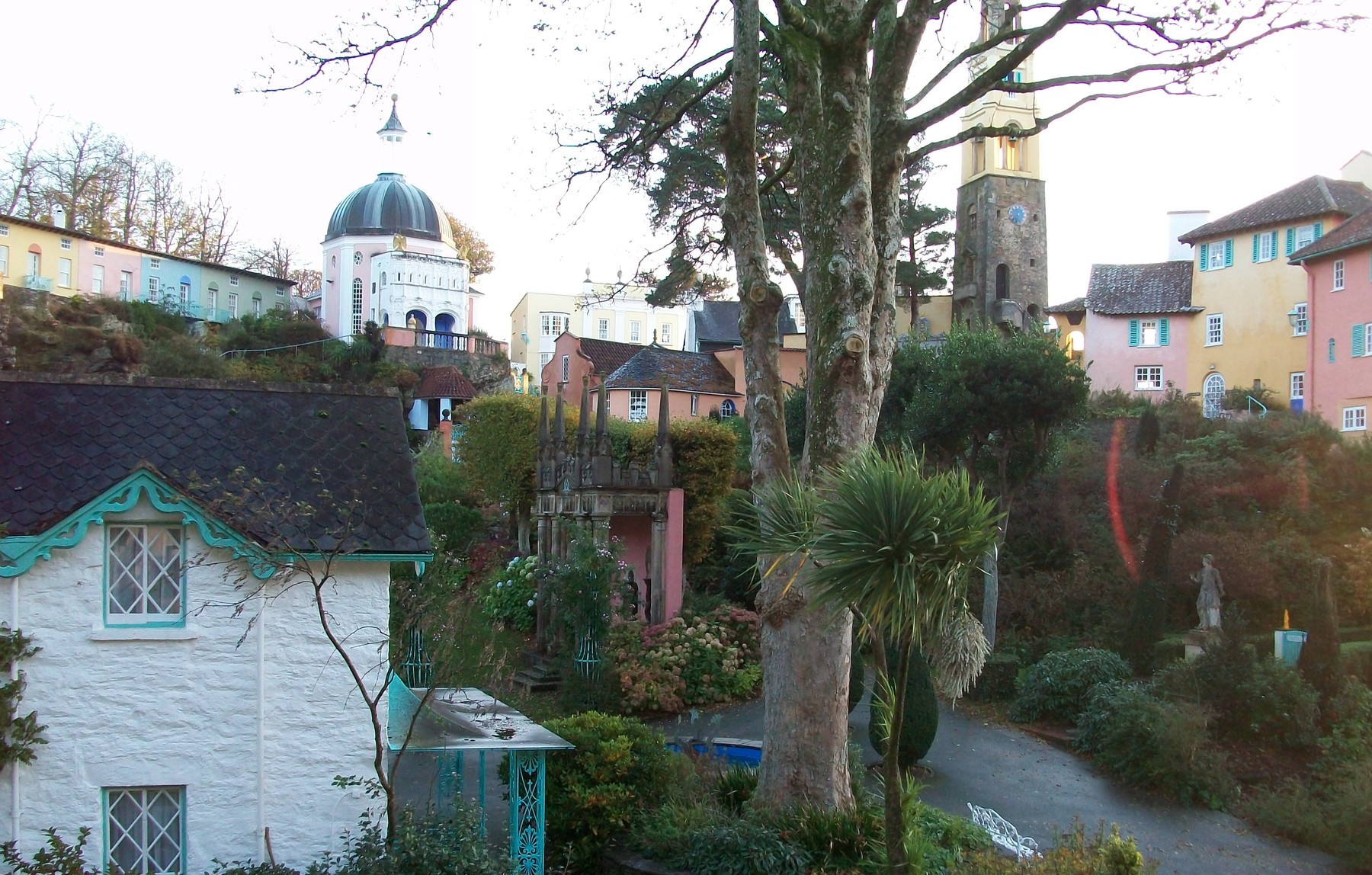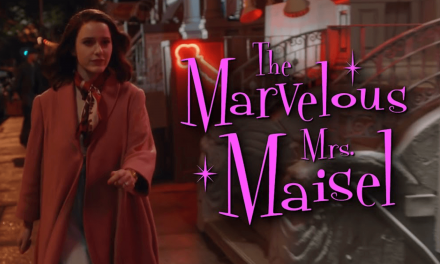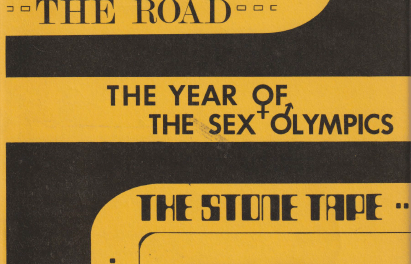Thirty years ago today [1], I made my first visit to an amazing place. A place that – like one of my favourite fictional concepts brought to me via the modern miracle of television – is bigger on the inside than the outside.
I had taken the British Rail service west out of London to the Berkshire town of Reading and – it being a mild autumn morning and me being thirty years younger than I am now – walked north by north east from the town centre, up the main thoroughfare of Peppard Road, and then continued along the same as it spurred off into a more secluded residential area of houses that I’d never be able to afford. And then, just beyond the school and behind verdant hedges, was a low, well-kept bungalow of the kind that in storybooks of a bygone age, young adventurers might go and visit their granny for tea and buns during the summer holidays.
And inside the deceptive façade is a vast vault that allows the television researcher to travel back in time.
This is the BBC Written Archives Centre.
I’ve mentioned this amazing place before in my very first blight on your rather nice academic blog. And I’ve referred to some of the astounding resources that it holds in terms of programme-as-broadcast (PasB) documents or camera scripts (both usually viewed through the now-rather-quaint technology of microfilm). But this is just the tip of the iceberg …
Now, at this juncture I’ll level with you. If you’re a commercial researcher, a visit ain’t cheap. Per person, it’s over £100 to step across the doorstep for the day – and, for us, that comes out of whatever we’re being paid for the finished text by Network Distributing (God rest its soul), TV Zone (God rest its soul) or Panini (formerly Marvel UK and still flourishing I’m glad to report). If we’ve been hired as researchers by BBC Studios, BBC Audio, BBC Books, BBC Television or BBC Anything Else, then, naturally, we visit for free. And bona fide academic researchers are also waived the visiting charge. I did this myself, once, some years ago, during a brief return to tertiary education; the expectation was that I could craft innovative and impactful thoughts on the notion of transatlantic cultural programme exchange… but in retrospect I suspect that I just wanted to watch episodes of The Cisco Kid (1950-1956). Oh Pancho! Oh Cisco!
On a standard visit, my wife and I would have quite a list of items that – ideally – we would like to consult to understand a BBC show as best as we could. The PasBs – giving time of transmission, project number, tape number, recording date, producer, director, writer(s), credited cast, uncredited cast, cast on film, amount of film used and details of both specially recorded and production or ‘library’ music – and the camera script would be primary items, along with any production files retained following transmission. Coming in all manner of sizes, these contained a variety of paperwork encompassing items such as studio floor plans, commissioning and payment forms for writers, filming or Outside Broadcast schedules, budget estimates, equipment requests, graphics order for closing credit rollers, design sheets, casting documents, costume and make-up charts, special effects requirements, storyline breakdowns, musical instrument hire requests, film lab processing reports, travel and accommodation arrangements, studio schedules, prop lists, studio recording retakes, Radio Times billings, viewer correspondence, and hand-written missives from thespians to directors commenting what an absolute pleasure it was to work on that show and please please please could they work together again. Possibly as soon as next week.
Of course, not every BBC programme is lavished with this data. For many shows – sadly – once the broadcast had been made and the paperwork had sat disregarded in a cupboard for a while, it had been disposed of. But, thankfully, in numerous cases, the bundles of forms and procedural documents have ultimately made their way to paperwork heaven where they are looked after and cared for in retirement.
And there’s more… the discussions of BBC executives about the weekly output can be found in the minutes of the Programme Review Board. There are press cutting files maintained for BBC series showing media coverage and reaction. The paperwork relating to the booking of artistes is held in extensive files for television and radio, while copyright files chronicle the journeys of script writers ideas from concept through commissioning to either transmission and residuals or the rejection pile, possibly with hefty doses of rewrites along the way. Sequences of files relating to the exploitation of corporation programming via BBC Enterprises (as was) in all manner of unlikely licencing requests. High-level policy discussions and plans for the future across departments. Shelves carrying not only the humble BBC Handbook once available from all good bookshops for 7s 6d, but also extensive lists of the organisation’s personnel for a given year, drilling down into each department below the upper echelons of HDGTel, DPTel, HFGTel and AHCAGTel(I).

Fig. 2: Hey Kids! Check out Lord Hill of Luton’s views on broadcasting for the new decade… Like the look of it? There’s a million times more at the Written Archives Centre!
Despite the detail of the PasBs, the old fashioned Title Index cards often threw up a quick picture of previously unknown and unscheduled broadcast patterns, while the Subject Index equivalents rapidly help to zero in on ancillary programming. Audience Research Reports periodically conducted on broadcasts collate viewer comments and reaction regarding specific aspects of a transmission in terms of quality, while the actual data of what percentage of the adult viewing population watched or listened to which BBC programmes in each region at each time on each day is lovingly tabulated in fine copperscript on a daily Audience Barometer.
And, a few years back, my birthday present from my wife was the Audience Barometer for the day on which I was born. This was a wonderful and unique surprise that she’d arranged with the archives researcher whom we were working with at the time.
And it’s the archivists on the staff at the Written Archives Centre (or the WAC as it’s known in Archive Biz) that bring it all to life and make it so special. In fact, it’s all the staff – from the moment that you arrive at reception and are warmly greeted with discussions about your journey and localised travel issues through to your departure at the end of a hard day’s note taking, a day punctuated in yesteryear by a complimentary beverage and biscuit in what used to be the little microfilm room.
Having been to various corporate archives over the years and had various experiences that have been less than satisfying in terms of productivity, my wife and I value the wisdom and help of those who work at the WAC who so often go above and beyond their call of duty.
The archivists seem to share the same passion that we have for all the amazing history that they look after for both us and the nation. For example, one of the archivists who looked after us some years back e-mailed me out of the blue one day. “Hello Andrew,” she said. “Now, I know you’ve been doing a lot of research into The Goon Show (1951-1960),” she said – only without the bracketed dates, “and I’ve just been vetting a file for another researcher about 1940s radio variety and there’s an audition report for Peter Sellers in here. I thought it might be of interest to you for your next visit.” And she was right. “Would you like me to make a note of it and add it to the requests,” she said.
How wonderful is that? How can we fail to like these nice people who enable rather than restrict our work?
The vetting process to open files to the public is a skilful one that’s much appreciated as it walks that fine line between open access and protection of personal data. Having seen the same file in both vetted and unvetted states depending on whether a visit was on behalf of the BBC or not, I now understand the importance and responsibility of such work.
And a lot of this is the understanding that the staff share with us. From the very first day in 1993, they have always advised us superbly on how best to use the facility. So – no – they didn’t hold a basic list of all the programmes featuring a given actor that in this computer age you’d now punch up on BBC Programme Index, but they did hold the contract files which would detail all the shows that they were hired for… and that pretty much came to the same thing.
On one occasion, my wife and I – through our misunderstanding of how the paperwork was stored – had submitted an advance list of material that simply wasn’t achievable. With guidance from the staff, we narrowed that down to key elements… and on our arrival one of the senior archivists allowed us ‘back stage’ into the stacks, the endless rows of shelves crammed with beige boxes and files, and explained to us how the paperwork was catalogued in a manner totally different to our imaginings… and, suddenly, we got it. We understood. And since then we’ve been able to tailor our requests more efficiently for both us and those amazing archivists.
And in the days when the microfilms of scripts and PasBs were located in the L-shaped corridor at the back of the reading room, we were even given special dispensation to pass through the ‘STAFF ONLY’ door as by that time we had an astute understanding of the sequences of boxes and what went where. The trust they have given us has been enormous. One day, a newly-arrived archivist was on duty as we went in search of details of The Black Adder (1983) behind the forbidden door, and – as they quite rightly moved to question our access, the legendary Jacqueline Kavanagh who happened to be passing explained: “It’s okay. That’s Mr and Mrs Pixley. We trust them in the microfilm corridor.”

Fig 3: One of the other places where we spent out honeymoon. Distinctly lacking in microfilms by comparison… but still rather wonderful.
That means a lot to us.
And the people mean a lot to us. Hearing about their own passions and hobbies, their holidays, decorating their bathrooms, and having them recommend books for us to read and films for us to watch.
Indeed, as I have previously related, our honeymoon many years ago was structured as an odyssey around the UK visiting people and places that were special to us, and amidst that blissful time my wife and I dropped in at the WAC to wallow in a couple of days reading all about how two series very dear to us – Elizabeth R (1971) and The Goodies (1970-1982) – were made a few decades earlier.
Thank you for three decades of wonderful visits lovely WAC people.
The paperwork is amazing. But it’s the people that make it even better.
Andrew Pixley is a retired data developer. For the last 30 years he’s written about almost anything to do with television if people will pay him – and occasionally when they won’t. Don’t you just love visiting archives? Better than holidays near the Equator any day!
Footnote
[1] Which for me, by the way, is Friday 10 November 2023… not your today, because you live in the future. I explained this last time. Keep up!







I hope the archive use your fantastic blog here as part of their website and/or another form of outreach, because I can’t think of any better way to make the generally public aware of the place than this. 🙂
The archive sounds like heaven (and/or somebody’s next funded postdoc project)! 🙂 I also adore archives and special collections in libraries. The tactile sensation of a book that was actually TYPED, not printed off a computer, the sounds of scrolling through microfilm, not to mention the scent of the film itself…I’m getting flashbacks to my MPhil (the good kind of flashbacks, not the usual ones :P).
Ah! Melissa! Bless you for finding time to comment. Especially when you’re very busy writing neat stuff of your own for us to enjoy. So good to see Benton Fraser being remembered! All very interesting as I didn’t quite get to that third run – I think it changed slots didn’t it to something odd, even *after* the BBC invested all that money on it. So, never got as far as “Mountie on the Bounty”, but the boxed sets from the late, lamented Network are all there on our shelves and we need to catch up with Benton and both Rays in due course…
But, yes… thank you for your kind words. The BBC WAC *is* an amazing place… but it’s that combination of paperwork and people that makes it very special. We’ve been to other great archives over the years… and some of them have been staffed by people who are and some have been staffed by people who’d be happy to have the whole lots scanned and shredded. We tend to prefer the former…
The amazing ability to harvest data by electronic means is something that has massively increased the quality of research and “productivity”… but the actual process, the sensations, the experience… that’s all *far* more rewarding when one can see and touch the documents. From local newspaper listings while I was in school, through a university conveniently close to a library that housed the “Radio Times” back to the 1950s, and then onto lovely places such as the WAC… it’s all been a *lot* of fun!
Hope all is well with you, and thank you – as always – for your kind words! 🙂
All the best
Andrew
Hi Andrew. Never thought I’d find a conduit to say ‘hello, and thanks for your writing’. I live in Australia so I was never going to run in to you at a fan event. Still, you were my ‘guru’ in my own pursuit of TV history knowledge.
Time Screen came out here via my local SF Book Store. Looking at a copy, it cost $7.50 AUS according to the shop stickers still on them (as a bit of info trivia). The only other mag like yours was one called Primetime from WTVA with a good mix of UK & SF. Easier to get were DWW /DWM and Starburst, Blakes 7 Monthly; all still owned and wondering if there’s any home for them in a digital age after I leave the mortal coil!
It was always good seeing/reading your contributions in Network TV releases. Gerry & Sylvia Anderson, The Goodies, The Prisoner I have passions for. I’m 60 years old to set a timeframe of my interest in TV and movie history. I’ve often wondered about your adventures in research, and your article you’ve written here gives me some insight. Thanks for the invaluable history you’ve documented. Regards, Geoff Tilley
Hello! Geoff! Now… there’s a name that I recognise from various bits of DWCV product that have made their way around the globe! Nice one! And bless you for your kind comments!
Nice to hear that – similarly – “TimeScreen” made its way down to the southern hemisphere now and again. It was an awful lot of fun to work on with people like Michael Richardson and Anthony McKay… but, goodness, it’s a rather quaint and misleading thing when I glance at them these days ([url]cstonline.net//cstonline.net///utter-rubbish-by-andrew-pixley/[/url]). Fascinating how our sense of value shifts across the decades. I felt similarly happy when my friend Tania Donald told me how she’d also seen copies of an earlier ‘zine – “Steel Sky” – in a comic store in Australia. You never had any idea how far these things would travel!
“PrimeTime” was also something special ([url]cstonline.net//cstonline.net///easy-access-by-andrew-pixley/[/url]) with people like Tony Mechele, Tise Vahigami and Dick Fiddy informing me about a stack of stuff that at the time I could never see.
Working with Network Distributing was so much fun… and it was very sad when the company went into liquidation a few months ago with the result that a lot of nice, clever, talented people lost their jobs. Some of them are now, thankfully, back in roles that make good use of their skills. But the opportunities afforded to me on ventures like “The Goodies”, “The Prisoner”, “UFO”, “Gideon’s Way”, “Monty Python…”, “The Beiderbecke Trilogy”, “The Professionals” and all the rest were ones that I was very lucky to have come my way and I miss immensely working with people like Steve Rogers, Martin Cater, Kimberley Voice, Rob White and – of course – I miss Tim Beddows who died suddenly a year ago this weekend and whose brainchild Network was. It was an amazing initiative with some brilliant people, and I am so grateful that they allowed me to join in the fun.
And the fun is very important. From your role in fandom I’m sure that you’ve been able to enjoy a lot of it over the years. And I hope there’s still an awful lot of fun with these shows in your life now, and continues to be so for many years! 🙂
Thank you for taking the time and trouble to post your kind words. Nice to know that these zines made it so far round the world!
All the best
Andrew
Hi Andrew. Mind blown that you correctly connected me with the Dr Who Club of Victoria! The club still runs after all those decades, as does our Star Wars and Star Trek clubs. The internet hasn’t killed them off, only their newsletters which you get in pdf not printed post.
Read the article link you included. Oh, to have had a Scala Cinema showing classic TV in the day!
We did have one small cinema showing Star Trek (and nothing other)! Ironically, most of us grouped in the foyer to socialise rather than watch inside. Different times.
Kindest regards, Geoff.
Happy Doctor Who Day Geoff! 🙂
Thought I recognised your name, and then “Australia” and – yes – absolutely – it all clicked into place! I was recommending the club to a friend of mine of late because they were disposing of their collection… and I’m delighted that people are still having such fun with all these shows. The internet may have changed stuff, but as long as people are still getting together and sharing the fun by whatever means, that’s the main thing.
Glad you found the article of interest. The Scala must have been amazing. Never got to go… but it was the stuff of legends. And – clearly – you are able to relate to these experiences from, as you say, different times.
All the best
Andrew